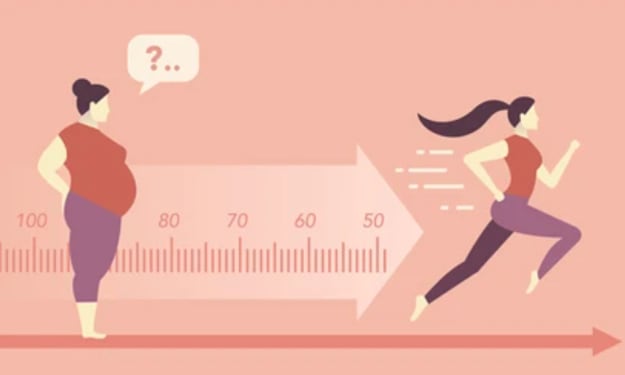Do Sleep Medications Increase Your Chances of Dementia?
sleeping Pills

Introduction
Various evidence points to a possible link between long-term use of some sleep aids and an increased risk of dementia. To establish a clear connection between sleep drugs and dementia, it's crucial to keep in mind that research in this field is currently ongoing.
The precise methods through which sleeping pills may raise the risk of dementia are unclear. However, recent research has revealed that some drugs, like benzodiazepines, may obstruct the brain's normal synaptic connections and plasticity, which are crucial for memory and cognitive function.
Additionally, it's critical to remember that the connection between sleep aids and dementia is probably complex and influenced by a number of variables, including age, general health, and the existence of other medical disorders.
It's vital to discuss with your doctor any potential hazards related to sleep drugs if you have any concerns. They can assist you in weighing the advantages and disadvantages of several therapies to choose the one that would work best for your particular need. Alternative therapies, such behavioural therapy or natural cures, could be suggested in specific circumstances.
Which sleep medications??
To treat insomnia or other sleep disorders, there are many different kinds of sleep aids available. The following are a few of the most often used sleep aids:
- Benzodiazepines: These sedative-hypnotic drugs are excellent in helping people fall asleep. Examples include temazepam, lorazepam, and diazepam (Ativan, Valium) (Restoril).
- Non-benzodiazepine hypnotics: These more recent sleep aids resemble benzodiazepines but are believed to have fewer negative effects. Zolpidem (Ambien), eszopiclone (Lunesta), and zaleplon are among examples (Sonata).
- Some antidepressants, such trazodone (Oleptro), can also be used to promote sleep. Typically, they are used in smaller doses than those for the treatment of depression.
- Melatonin receptor agonists: These drugs are used to assist control the sleep-wake cycle because they mirror the effects of the hormone melatonin. Ramelteon (Rozerem) and tasimelteon are two examples (Hetlioz).
Racial differences in dementia
There is proof that certain racial and ethnic groupings may have a higher risk of dementia than others. For instance, as compared to white populations, African Americans and Hispanics had a higher incidence of Alzheimer's disease and a higher pace of advancement. However, socioeconomic and lifestyle factors, such as lower levels of education, income, and access to healthcare, as well as a higher burden of cardiovascular risk factors and other health conditions that can increase the risk of dementia, are thought to be largely responsible for these disparities.
Additionally, it's crucial to recognise that genetics may contribute to the occurrence of dementia in particular groups; however, additional research is required to completely comprehend the genetic and environmental components that cause these variations.
Healthcare professionals must be aware of these inequalities and give dementia patients from all racial and ethnic backgrounds care that is sensitive to their cultural heritage. Additionally, it's critical to maintain financing for the research that will enable us to better comprehend the reasons behind these discrepancies and create prevention and treatment plans that are efficient for all groups.
What should you do if you use sleeping pills?
Sleeping Pills Usage Tips:
It's crucial to carefully follow any recommendations given by your doctor or on the drug label if you use sleeping tablets. Here are some general pointers to remember:
- Use only as directed:Use the medication solely as prescribed, using the recommended dosage and for the minimum amount of time.
- Avoid alcohol:Avoid alcohol since it can make sleeping tablets more sedating, which is harmful.
- Don't drive or operate heavy machinery: Driving or operating heavy machinery while under the influence of sleeping tablets is not advised because they can make you drowsy and impair your ability to focus.
- Avoid combining with other medications:Don't take other drugs together: It's crucial to tell your doctor about all the prescriptions you are taking because sleeping pills and other drugs may interact.
- Gradually reduce the dose: If you want to stop taking sleeping pills, it's important to do so gradually to avoid withdrawal symptoms.
- Seek medical attention if needed:Seek medical attention if needed: If you experience any unusual side effects or if the medication doesn't seem to be working as well as it used to, seek medical attention.
5 types of dementia and how to recognise symptoms
- Alzheimer's disease: 60–80% of all cases of dementia are caused by this, making it the most prevalent type. Early signs can include linguistic difficulties, memory loss, and difficulty finishing routine chores. Alzheimer's patients may experience confusion, mood changes, and a reduction in their capacity for self-care and communication as the disease worsens.
- Vascular dementia: Vascular dementia is a condition that results from decreased blood supply to the brain, typically following a stroke. It may result in symptoms like disorientation, issues with balance and coordination, and issues with memory and reasoning.
- Lewy Body Dementia (LBD) is a chronic condition that impairs thinking, mobility, and behaviour. Visual hallucinations, shifts in concentration and alertness, and tremors are a few symptoms that can occur.
- Frontotemporal dementia: Frontotemporal dementia alters behaviour, language, and decision-making by affecting the front and sides of the brain. This form of dementia can cause people to behave inappropriately in social situations, have trouble speaking, and engage in repetitive or compulsive behaviours.
- Parkinson's condition:Parkinson's disease and dementia Dementia is a type of dementia that can appear in some Parkinson's disease patients. Memory loss, issues with thinking and reasoning, as well as changes in mood and behaviour, are possible symptoms.
- Establish a sleep schedule: Try to go to bed and wake up at the same time every day, even on weekends. This helps regulate your body's internal clock and improves the quality of your sleep.
- Create a sleep-conducive environment: Keep your bedroom cool, dark, and quiet, and invest in a comfortable mattress and pillows.
- Limit exposure to screens before bedtime: The blue light from screens can interfere with your body's production of melatonin, a hormone that regulates sleep. Try to avoid screens for at least an hour before bedtime.
- Exercise regularly: Regular physical activity can help you fall asleep faster and sleep more soundly. Just be sure to finish exercising at least a few hours before bedtime, as the stimulation from exercise can interfere with sleep if done too close to bedtime.
- Avoid caffeine, alcohol, and nicotine: These substances can interfere with your ability to fall asleep and stay asleep. Try to avoid consuming them, especially in the hours leading up to bedtime.
- Relax before bedtime: Practice relaxation techniques, such as deep breathing, meditation, or yoga, to help you wind down and prepare for sleep.
- Make sure you're getting enough daylight: Spending time outside in natural light during the day can help regulate your sleep-wake cycle.
- Don't lie in bed awake: If you can't fall asleep within 20-30 minutes, get out of bed and engage in a relaxing activity until you feel sleepy. The goal is to associate your bed with sleep, not frustration and wakefulness.
Improve sleep without medications
Here are some ways you can improve your sleep without using medications:
Remember, it's important to make these changes a regular part of your routine for the best results. It may also take some time to see the full benefits, so be patient and persistent!
About the Creator
Enjoyed the story? Support the Creator.
Subscribe for free to receive all their stories in your feed. You could also pledge your support or give them a one-off tip, letting them know you appreciate their work.






Comments
There are no comments for this story
Be the first to respond and start the conversation.